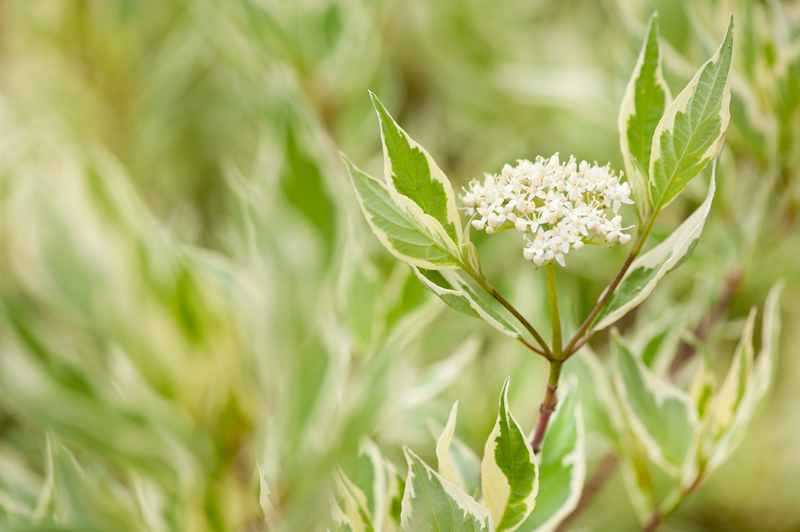Protect Your Garden: Essential Winter Plant Care Guidelines
Posted on 14/08/2025
Protect Your Garden: Essential Winter Plant Care Guidelines
Winter can bring beauty to your landscape, but it also poses a significant challenge for anyone who treasures their garden. Cold temperatures, frost, snow, and icy winds can threaten the vitality of even the hardiest plants. If you are a gardener seeking ways to preserve your outdoor oasis, learning essential winter plant care is vital. In this comprehensive article, you'll discover proven tips and best practices for protecting your garden during winter. Whether you're a seasoned horticulturist or a gardening enthusiast, these guidelines will help keep your green haven thriving through the colder months.
Why Is Winter Plant Protection Important?
Plants, much like people, react to winter's chill in different ways. Tender perennials, semi-evergreen shrubs, established trees, and even container plants require specific winter protection to survive and flourish come spring. Employing strategic winter garden care ensures root health, improves plant resilience, and enhances future growth. Ignoring winter care for your garden may result in weakened, diseased, or dead plants by the time the snow melts.
- Prevents winter kill: Shield plants from frost and freezing temperatures.
- Protects root systems: Insulates delicate roots from severe cold snaps.
- Minimizes water loss: Reduces transpiration and guards against desiccation.
- Battles winter diseases: Lessens the impact of dormant pathogens.
- Encourages vigorous spring growth: Ensures plants emerge stronger come warmer weather.

Essential Winter Plant Care Guidelines
Understanding how to care for your garden in winter starts with evaluating your garden's unique needs. Below you'll find actionable steps and advice for protecting plants from winter weather.
1. Assess and Prepare Your Garden Early
The key to winter garden success is preparation. Before the first frost, inspect your garden for susceptible plants. Make a checklist of both annuals and perennials, focusing on their sensitivity to cold.
- Remove dead or diseased foliage: Clear away fallen leaves and prune dead branches to reduce disease risk.
- Transplant sensitive species: Move tender plants indoors or to greenhouses if possible.
- Clean up garden beds: Eliminate debris that can harbor pests during winter.
2. Mulch for Insulation and Protection
Mulching is one of the most effective winter plant care techniques. A thick layer of mulch insulates roots, stabilizes soil temperature, and retains soil moisture.
- Apply 2-4 inches of mulch--use leaves, straw, pine needles, or bark chips.
- Mulch perennials, bulbs, and shrubs after the first hard frost for best results.
- Don't pile mulch against stems--leave space to prevent rot.
*Tip: Organic mulch further improves soil fertility as it decomposes over winter.
3. Watering Wisely During Winter
Many people mistakenly stop watering in winter, assuming dormant plants need no moisture. In reality, roots still require hydration--especially in cold, dry climates.
- Water deeply before the ground freezes to help plants store moisture.
- Check soil moisture regularly--dry spells can occur even with snowfall.
- Water evergreens and newly planted trees more often since they lose water through their leaves/needles in winter air.
4. Shield Plants from Harsh Winds and Frost
Cold, desiccating winds are one of winter's biggest dangers. They strip moisture from plant tissues, causing browning and dieback.
- Install windbreaks: Use burlap screens or temporary fences to protect exposed areas.
- Cover vulnerable plants--wrap shrubs in burlap or horticultural fleece for insulation.
- Group container plants--place pots close together and move them against sheltered walls.
*Tip: Use frost cloths or old blankets on especially cold nights to prevent frost damage.
5. Caring for Container and Potted Plants
Container plants are particularly susceptible to cold because their roots aren't insulated by the earth. Winter protection for pots is crucial.
- Move pots to sheltered spots--such as patios, garages, or porches.
- Wrap pots with bubble wrap or burlap for added insulation.
- Elevate containers slightly to help prevent waterlogging and root rot.
- Reduce watering frequency, but don't let soils dry out completely.
6. Pruning and Plant Maintenance
Proper pruning helps reduce disease and prepares plants for a robust spring bounce-back.
- Remove weak, crossing, or damaged branches from trees and shrubs.
- Wait until late winter for heavy pruning, except for dead or diseased wood.
- Avoid fertilizing before deep winter--it can trigger weak, frost-prone growth.
7. Protecting Trees from Snow, Ice, and Wildlife
Heavy snow and ice can break branches, while hungry animals may strip bark or chew twigs.
- Brush off heavy snow from branches after storms--use gentle upward motions.
- Wrap trunks with tree guards or hardware cloth to deter gnawing rodents and deer.
- Install fencing or netting around small trees and shrubs as a wildlife deterrent.
Specialized Winter Plant Care Tips for Various Plant Types
Perennials
- Cut back stems in late fall only for those prone to disease.
- Leave some foliage for overwintering beneficial insects and added insulation.
- Mulch deeply to protect crowns from frost heave.
Annuals
- Uproot and compost spent annuals to avoid pest buildup.
- Seed annuals like pansies or violas in late fall for early spring color.
Bulbs
- Plant spring-flowering bulbs before the ground freezes.
- Mulch after planting to stabilize soil temperature.
- Mark locations to prevent accidental digging when ground thaws.
Evergreens and Shrubs
- Water well before frost and hydrate during winter dry spells.
- Shield with burlap screens if exposed to wind or sunscald.
- Monitor for winter burn--brown, dry foliage is a sign of moisture loss.
Common Winter Plant Problems and Prevention
Understanding common threats is key to ensuring successful winter plant survival:
- Frost heave: Freeze-thaw cycles push plants out of the soil. Prevent by mulching and watering consistently.
- Root rot: Soggy, poorly drained soil encourages disease. Ensure proper drainage before winter sets in.
- Desiccation: Dry winds and sun can dehydrate evergreens. Mulch and provide winter watering as needed.
- Pest and rodent damage: Wrap trunks and use repellents to ward off animals seeking food and shelter.
Innovative Tools and Products for Winter Garden Protection
Modern gardening offers innovative solutions for protecting your garden during winter:
- Frost blankets and floating row covers--provide protection from sudden temperature drops.
- Anti-desiccant sprays--reduce moisture loss from evergreen foliage.
- Heated plant mats--keep containerized plants warm in greenhouses or indoors.
- Decorative cloches and bell jars--insulate special or young specimens.
Frequently Asked Questions About Winter Plant Care
Q1: Should I fertilize plants in winter?
No, it's best to avoid fertilizing garden plants during winter. Fertilization stimulates new growth, which is more susceptible to frost and can weaken the plant's natural dormancy cycle. Plan to fertilize in early spring as plants begin to grow.
Q2: How do I know if my garden needs extra winter protection?
If you live in a region with prolonged cold snaps, heavy snowfall, or extreme wind exposure, more extensive winter protection for plants is necessary. Assess plant hardiness zones and observe which plants have suffered in previous winters.
Q3: What are signs of winter damage?
Symptoms of winter damage include browning or scorched evergreen foliage, cracked or split bark on trees, stunted spring growth, or visibly uprooted/misaligned perennials (from frost heave).
Q4: What's the best way to protect young or newly planted trees?
Wrap trunks with tree guards or spiral wraps, mulch generously, and water well before ground freeze. Optional: stake the tree if heavy snow or ice storms are common.

Sustainable and Eco-Friendly Winter Garden Practices
A healthy, resilient garden can endure winter with minimal intervention if you nurture it year-round. Prioritize these sustainable strategies:
- Plant native species suited to your climate--they require less winter protection.
- Compost fall leaves and use them as natural mulch.
- Preserve wildlife habitats by leaving seed heads and some plant debris.
- Choose eco-friendly materials for wraps and covers (organic burlap, straw, etc.).
Embrace Winter: Preparing for Spring Renewal
Winter in your garden need not be a season of worry. With careful planning and these essential winter plant care guidelines, you can protect your garden and ensure a lush, blooming landscape as the seasons change. Remember, the true mark of expert gardening lies in the care invested during nature's harshest months.
Invest in insulating mulch, protect roots and stems, shelter from biting winds, and keep a watchful eye on water needs. Whether you're nurturing a sprawling perennial border, cherished specimen trees, or humble containers, smart winter plant care will reward you with thriving plants--season after season.
Begin your winter preparations now and enjoy a resilient, flourishing garden for years to come!
```Latest Posts
Creating a Backyard Adventure for Children
Transform your yard with these nine privacy-enhancing hedges
Beginner's Guide to Herb Gardens

